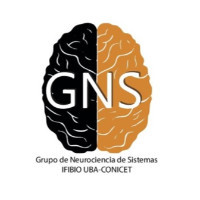Adolescence is a developmental period in which many behavioral and physiological changes occur, preparing individuals for their independence. There are age-related increases in social interactions and a also a clear preference for risk-taking/novelty seeking behaviors. Consistently with this, in freely-moving experiments in a self-initiated task we have found a higher amount of premature responses in adolescent rats. Thus, the aim of this project is to fully characterize how adolescents and adults learn an action sequence in order to obtain a reward and also to find which aspects of adolescent behavior could be at the basis of the impulsivity we have previously observed in this task. We will train p30, p 45 and p60 rats of both sexes and evaluate their performance in other paradigms such as the open field and Y-maze. Here we show the results obtained with the first group of adults. In a next stage, after the behavioral analysis is complete, we will assess the involvement of different brain structures with pharmacological inactivation.
P#103
Characterization of age-related differences in impulsivity among adolescent and adult rats
Micaela Betsabe Marini
- CABA,
- Argentina
- Micaela Betsabe Marini ¹
- , Cecilia Martinez ¹
- 1 Grupo Neurociencias de Sistemas, IFIBIO-Houssay, UBA-CONICET

